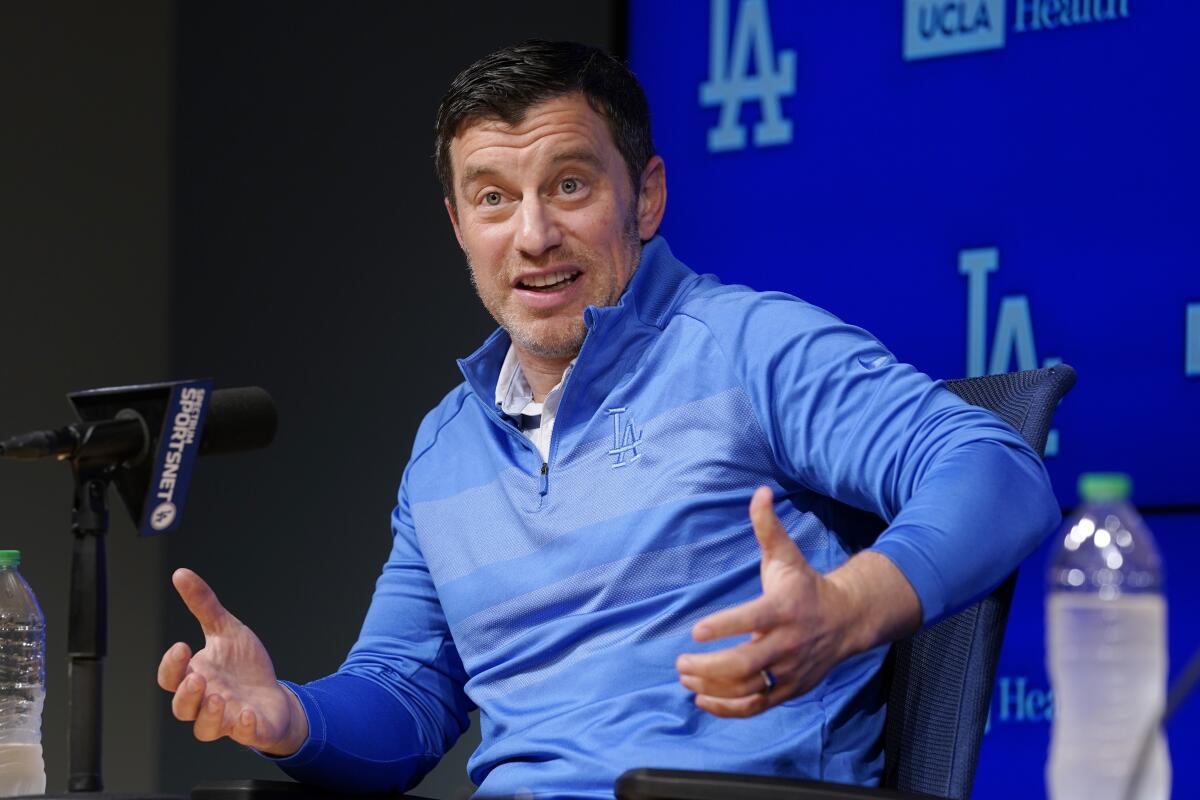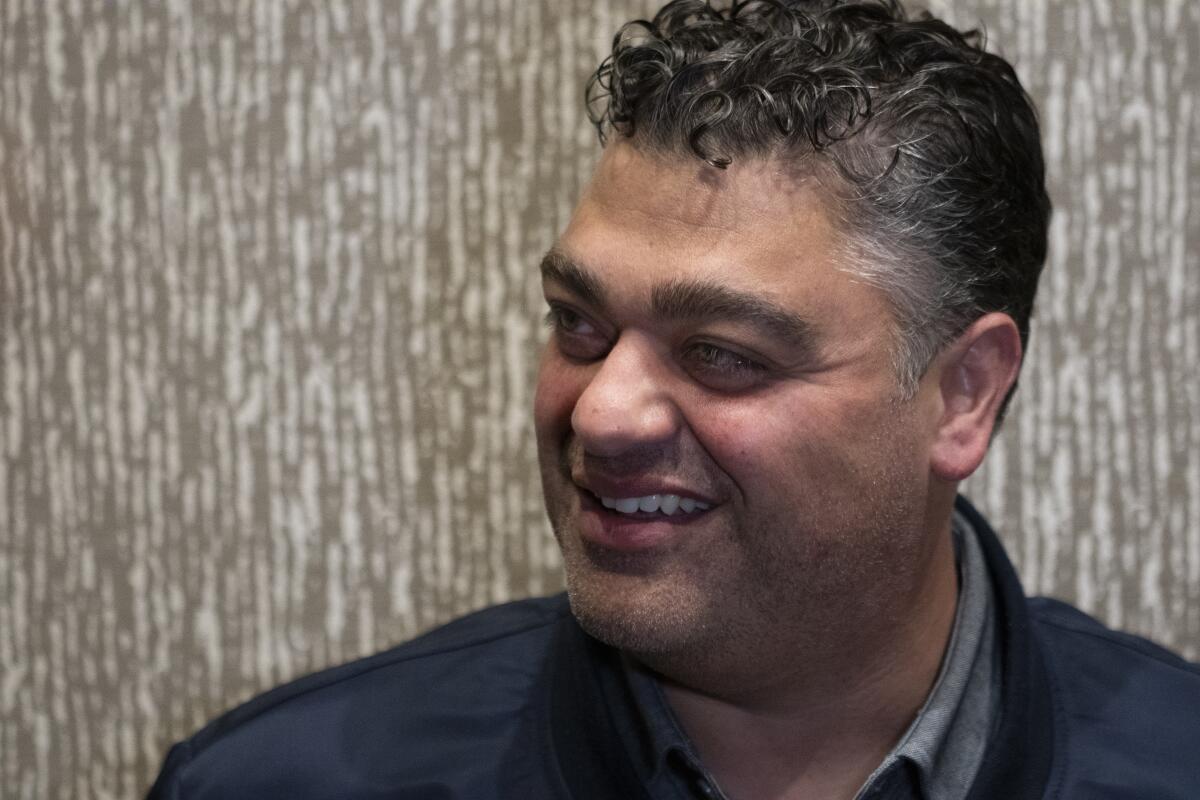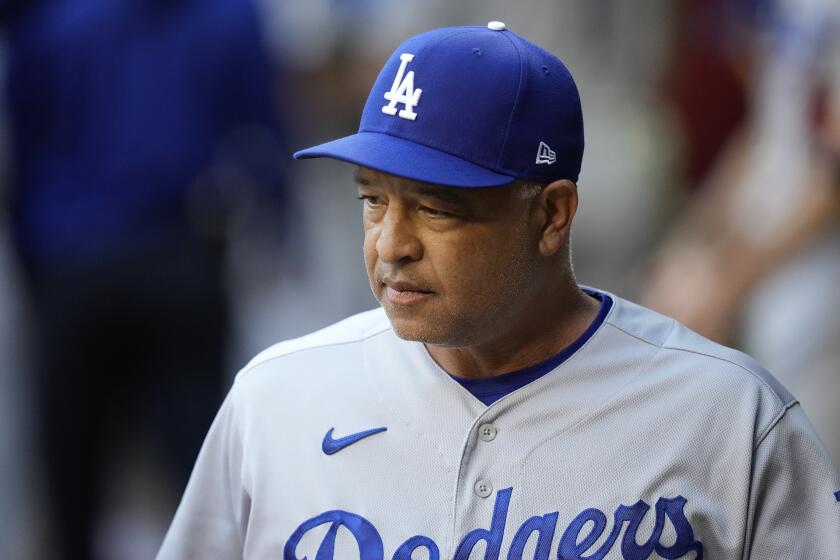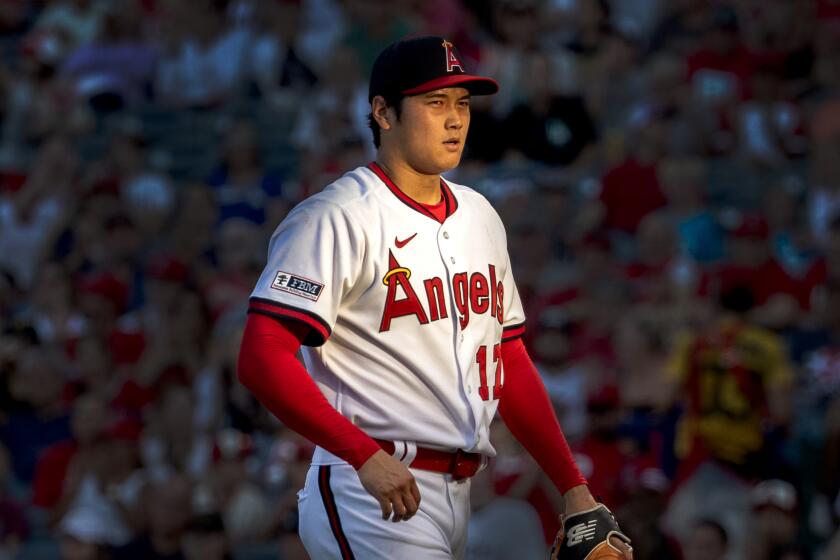MLB teams say they can’t talk about free agents. That’s not entirely true

- Share via
NASHVILLE — For a few minutes Tuesday, reporters peppered Dodgers general manager Brandon Gomes with questions about free agent Shohei Ohtani. Everyone knew the club recently met with the two-way superstar. Manager Dave Roberts disclosed it, with some detail, earlier in the day at the Gaylord Opryland, to the shock of just about everyone in the industry.
But Gomes refused to engage on the topic. He repeatedly evaded confirming the meeting. He refused to say anything about Ohtani. Gomes, of course, wasn’t required to. He doesn’t have to share what he doesn’t want to. But when asked why he chose that route after Roberts had disclosed the development, he offered a different reason.
“Because,” Gomes said, “we’re not allowed to talk about current free agents.”
The Dodgers remain in the same position they were at the start of the winter meetings: waiting for Shohei Ohtani to select a team.
It’s a reason several front office executives and managers have cited when asked about Ohtani in recent weeks. It’s also not true.
If teams were not allowed to discuss free agents, Roberts would have put the Dodgers in line for potential punishment for breaking rules. But he didn’t.
The rules that stipulate what teams are allowed to publicly say about free agents are in Attachment 49, on pages 329 through 331, of the collective bargaining agreement. Nowhere does it say that teams are prohibited from discussing free agents with the media. There are, however, limitations.
Parties cannot comment “about the value of an unsigned free agent, or about possible or contemplated terms for an unsigned free agent, regardless of whether discussions have occurred.” In other words, parties cannot discuss specifics about a player’s market or a possible deal either on or off the record.
Examples of prohibited comments are listed.
“Player X won’t receive anything longer than a one-year deal.”
“Player X is seeking more than Player Y received.”
“We are out on Player X.”
“We have concerns about Player X’s physical condition.”
Involved parties — players, agents, club officials — are allowed to “respond to a Media Report of the existence or terms of a Contract Offer” effectively by declining to comment, confirming it or denying it.

But teams are allowed to comment about a free agent and they’re allowed to reveal that a meeting with one occurred. Roberts didn’t break any rules. He stayed away from what was discussed in the meeting and what the Dodgers are willing to offer Ohtani.
On Wednesday, Angels general manager Perry Miniasian also refused to discuss Ohtani. When asked if he was not allowed to, he declined to divulge details.
“Everybody does things different,” Miniasian said. “Organizations do things different. So I’m not — I’m staying away from that [question].”
Dodgers president of baseball operations Andrew Friedman said Wednesday he was “always going to be unable to discuss free-agent players” because he wants to avoid any chance of being accused of negatively affecting a player’s market. He was later asked if MLB’s rules on the matter make sense to him.
Don’t expect the two-way superstar to announce who he’s signing with like LeBron James did with “The Decision.”
“I feel like it’s clear, but that doesn’t mean I’m right,” Friedman said. “In my head it is clear. As far as whether I understand it or not, I do from the players association standpoint. Obviously, if teams are saying they are in on a free-agent player, that’s helpful.
“But if they’re saying they’re out, that’s obviously not helpful at all. And if you are confirming that you are in on some guys and not on others, you can infer that those teams aren’t in. And just the effects that can have on the open free market, I think, is what they’re trying to avoid with that. And I understand that.”
That’s fair. Why risk upsetting a free agent, especially a superstar like Ohtani? He and his camp have made it clear they don’t want the process to play out publicly. Teams even have been warned not to provide media leaks, according to reports. The potential downside is ample. But a rule completely barring teams from publicly discussing a free agent doesn’t exist.
More to Read
Are you a true-blue fan?
Get our Dodgers Dugout newsletter for insights, news and much more.
You may occasionally receive promotional content from the Los Angeles Times.









